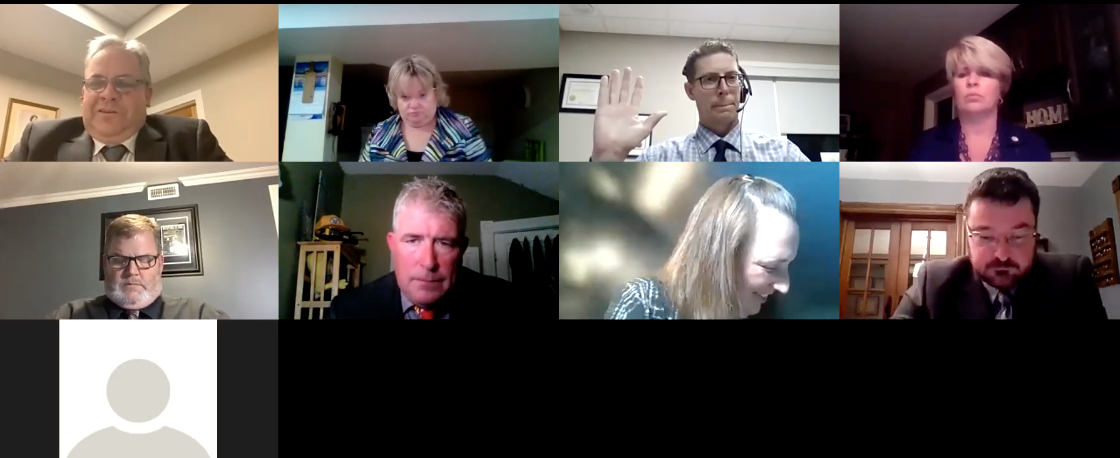WELLINGTON NORTH – Council here is granting township staff time to study the commercial production of cannabis before accepting any new applications.
Under Planning Act authority, council passed an interim control bylaw on Sept. 27, effectively preventing new cannabis operations for a year with the potential for the bylaw to be extended for an additional year.
Public notice and meetings aren’t required to pass an interim control bylaw, but an extension would be subject to appeal.
As a means of keeping municipalities in check, now that such a bylaw has been used, the township won’t be able to pass another for three years.
Permitted under the federal Cannabis Act, personal-use production can continue—the interim bylaw has no effect.
The same goes for current and future cannabis retail stores; they’re generally able to operate anywhere retail zoning exists.
Two operations in the Riverstown industrial area have previously been granted zoning bylaw amendments and will continue operating under legal non-conforming use.
On Aug. 23, township staff were directed to study land use planning policy surrounding noise, odour, water use, security and traffic involved in cannabis production. The study will also look at zoning and determine if changes should be made.
During council’s Sept. 27 meeting, councillor Lisa Hern questioned if there could be legal consequences for prohibiting future applications through the interim bylaw.

Screenshot of the Sept. 27, 2021 Wellington North council meeting.
Clerk Karren Wallace cautioned councillors that legality issues would normally be discussed in closed session.
Mayor Andy Lennox thanked Wallace for the reminder and urged that any responses to be kept in “pretty general terms.”
CAO Mike Givens waved his hand wishing to speak as Lennox said, “I think the whole purpose of us doing this, passing this bylaw, is to prevent the potential for appeals.”
Givens nodded along in agreement.
Without the interim bylaw, an appeal could be made if the township were to fence sit and not make a decision on an application.
Lennox continued, “By doing this, it kinda heads that off and says, ‘okay, everything’s on pause for a year; you wanna submit your application, we’re not gonna deal with it until a year’s up.’”
Givens said the township wants to help council make an educated decision on how to handle future cannabis production applications.
“We can’t do that without some time and we don’t want be dealing with applications, so this is the avenue to stop applications,” Givens explained of the bylaw.
Councillor Steve McCabe also asked if the bylaw would prevent “what just went on from ever happening again,” referring to an illegal grow operation in Arthur busted by the OPP and reported by the Advertiser in June.
An industrial building located at 10 Wells Street West and owned by Woodbridge-based CCR Holdings was the subject of a contentious application to rezone the property for indoor cannabis cultivation and processing with an eye to future commercial production.
Councillors deferred a decision, feeling they didn’t have enough information and denied the application on Aug. 9.
Between council’s deferral and decision, the building was used for the production of some 7,500 marijuana plants, later seized by police on on June 4. The original application was to permit the cultivation of 438 plants in the building under a personal growing license.
“All the best policies and procedures in the world” won’t stop illegal operations like the one seen in Arthur, Lennox responded, adding straightforwardly, “It isn’t going to stop it.”
Lennox said the idea is to get ahead of the changing landscape of legalized cannabis production and be better prepared to handle future production applications.
“If there is a legitimate production request … how do we deal with it?” he said.
Councillor Sherry Burke wanted to know if the township’s work will address planning where facilities should go within the township. She also asked for a timeline.
“I just don’t want this to be prolonged,” she said. “I’d just to keep the ball rolling on this.”
County development planning manager Curtis Marshall said staff will examine how to classify the use of the facilities (agricultural versus industrial) to determine where they might fit in the township and said staff will be presenting a background report to council.
In a followup phone call with the Advertiser, Marshall said the backgrounder wouldn’t be expected until early next year.
The township’s study process will address:
- federal licensing regulations for cannabis production;
- other municipalities’ studies and bylaws;
- provincial, county and township land policy;
- land-use impact of commercial cannabis production;
- recommendations for council;
- a public meeting; and
- a final recommendation report with the potential for a draft zoning bylaw.




